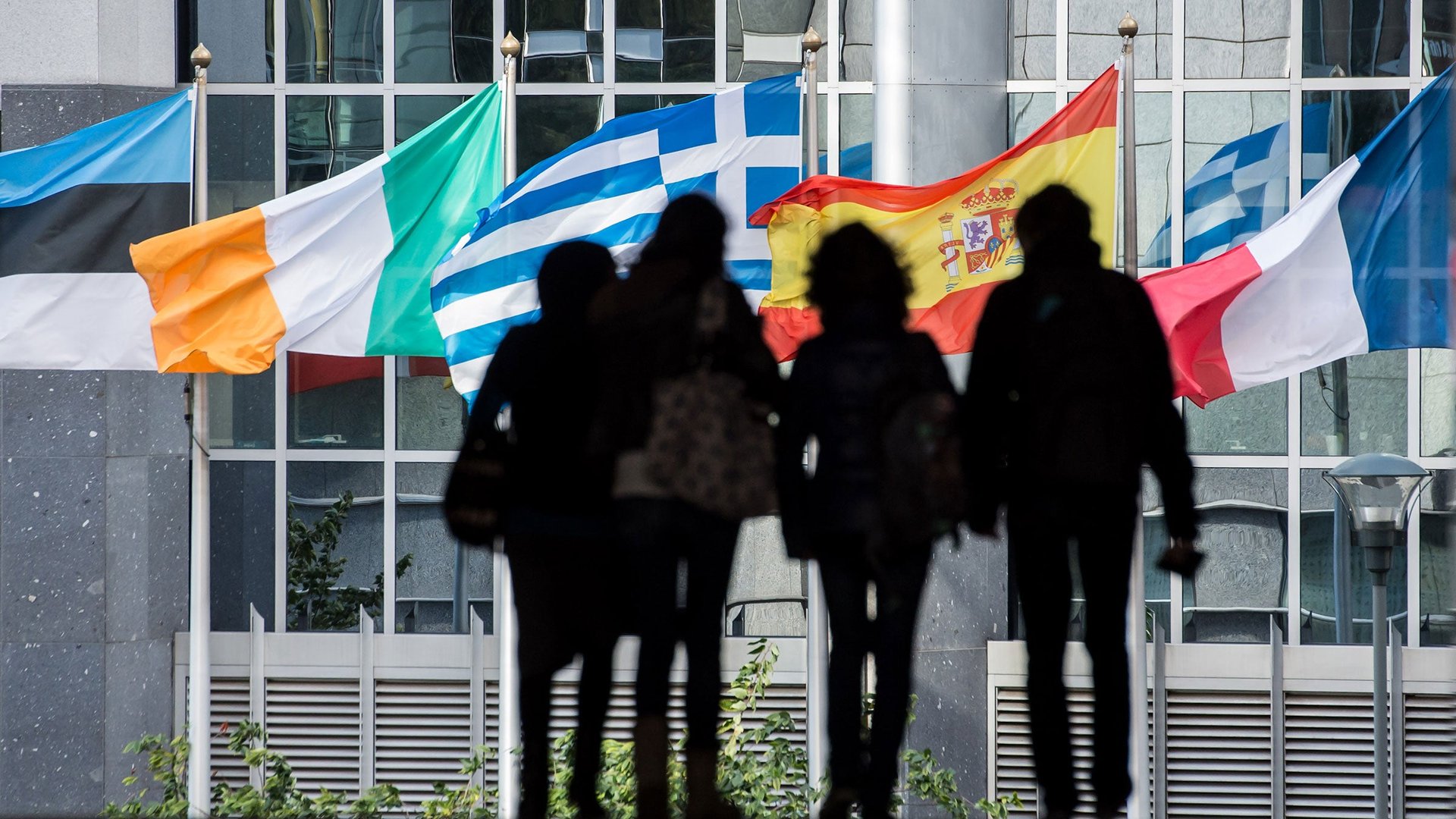EU leaders are expected to kick the can further down the road at Brussels summit
Europe’s future as a single market hangs in the balance, yet no major resolutions are expected at this week’s EU summit. On the agenda will be Greece, obviously, Spain’s fate, and also banking and monetary union. Despite the seriousness and urgency of these issues, by most accounts, meetings on Thursday and Friday will mostly involve more talking.


Europe’s future as a single market hangs in the balance, yet no major resolutions are expected at this week’s EU summit. On the agenda will be Greece, obviously, Spain’s fate, and also banking and monetary union. Despite the seriousness and urgency of these issues, by most accounts, meetings on Thursday and Friday will mostly involve more talking.
Deutsche Bank’s Macro Strategy report today said:
…as far as the EU summit is concerned we are certainly not expecting any major crisis resolution to be announced. Indeed whilst Spain and Greece will most likely be discussed, our European economists do not expect decisions on either.
Here are some pressing issues on the summit agenda that are unlikely to be resolved:
Greece is a month away from going broke. Yet its international creditors—the European Central Bank (ECB), the European Commission, and the International Monetary Fund (IMF), a.k.a. the “troika”—remain divided on how to handle the problem, while Greek leaders have yet to convince them of their restructuring strategy. A decision isn’t likely this week. Indeed, nothing will likely happen before November.
Little resolution is expected on a Spanish bailout either, even as Spain replaces Greece, Ireland and Portugal as the nation most in need, and borrowing costs have grown unsustainable for the long term. While Spain will be discussed, nothing serious that affects its fate is likely to be decided this week in Brussels. Of course, much of this is really up to the Spaniards, who say they’re considering conditions attached to a sovereign bailout. Euro zone officials say the request would likely be considered along with bailout decisions affecting Greece and Cyprus in November. Apparently Germany and others prefer to decide these things all at once to avoid three separate national parliamentary debates.
Agreement on banking union—involving central regulation over euro zone banks, a shared recapitalization mechanism, and a shared bank deposit guarantee—won’t likely happen before January, if then. Countries remain deeply divided over the shape and form the union should take even though most officials agree that banking union is critical to euro zone stability. Still, there will be a lot of talk about this and more pledges will probably be made to cut the link between bank and sovereign debt, just like at the EU summit in June.
Leaders are also likely to discuss a single central budget to improve monetary union, but that won’t get resolved either. What this central budget would include is still sketchy. It was only introduced a month ago by Herman Van Rompuy, president of the European Council.
And so, what will be accomplished this week? More photo opps, promises, and a lot of heated debate.
The run-up to this meeting has been particularly animated with divisions growing over how to fix the euro zone’s problems. On one side is the IMF leader, Christine Lagarde. During the IMF meeting in Tokyo last week, she said Europe’s leaders may be carrying austerity too far—following the release of an IMF report showing that growth is suffering more than expected as leaders try to cut debt.
German Finance Minister Wolfgang Schäuble struck back the next day, saying changing direction now would be a mistake and undermine confidence in the entire euro turnaround project. Olli Rehn, European commissioner for economic and monetary affairs, then jumped in to say that the IMF’s findings could be disputed.
Perhaps it was in this vein that while speaking in Singapore today at the Asia-Europe finance ministers’ meeting, Rehn took time out to meet with reporters to point out the great progress the EU has made with the new permanent bailout fund, and “unconventional measures” offered by the European Central Bank’s offer to buy bonds from ailing economies. Then he took a moment to assure all that there was nothing to fear:
There is no likelihood of any country leaving the euro zone. The key message I told the ministers was that there is cause for prudent optimism. I think that the worst is over for the euro debt crisis.
Not everyone is convinced.